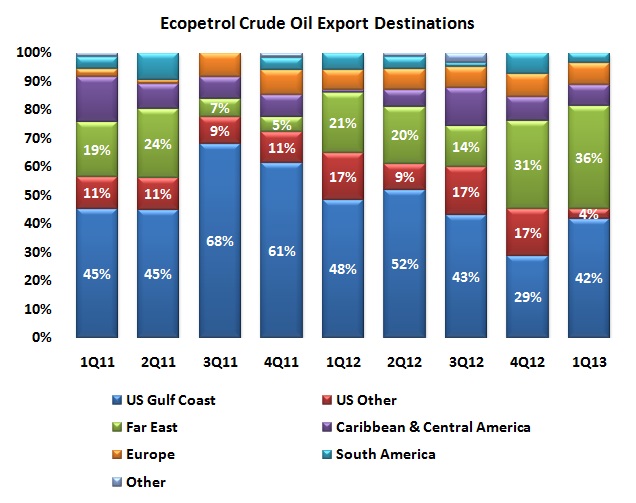The economic crisis and growth in unconventional oil production are putting pressure on European oil firms Cepsa (Spain) and Total (France) to sell their share in the Ocensa Pipeline in Colombia.
The Transport Minister Cecilia Álvarez Correa-Glen announced that the ministry will form a technical committee to come up with solution to mitigate some of the problems stemming from oil trucks on public highways.

Construction of a new “Pacific Pipeline” could help alleviate bottlenecks in transporting crude from oil fields, complementing the other two main pipelines and speed delivery to meet growing demand in Far East markets like India.
Colombian oil producer Raven held a socialization meeting to present the project diagnostic for a pipeline that will connect its operations with the Bicentennial Pipeline.
The Banco de Bogotá has been one of the lead banks to finance the US$5B needed for all three phases of the Bicentennial Pipeline and bank executives expect this role to continue as the pipeline becomes operational.
Ecopetrol’s Coveñas terminal is the first among members of the Regional Association of Petroleum, Gas and Biofuel Companies in Latin America and the Caribbean (Arpel) to receive a cross check audit as part of an integration process.
More than 40 points of the Catatumba pipeline were detonated over the weekend creating an environmental emergency as crude flows into the surrounding area.
Ecopetrol could have the requirements and details of a modernization project of the Barrancabermeja Refinery ready by the end of the year, which would mean it would award contracts to do the work during 2014.

Every quarter Ecopetrol helpfully publishes the distribution of its crude oil exports. Other producers would have different profiles but considering the NOC’s size both in terms of production and commercialization, this is a good indicator of the country as a whole.
The Minister of Mines and Energy Federico Renjifo told bankers at a recent banking convention that growing hydrocarbons production in Colombia requires significant investments in coming years, creating an opportunity for the financial sector.